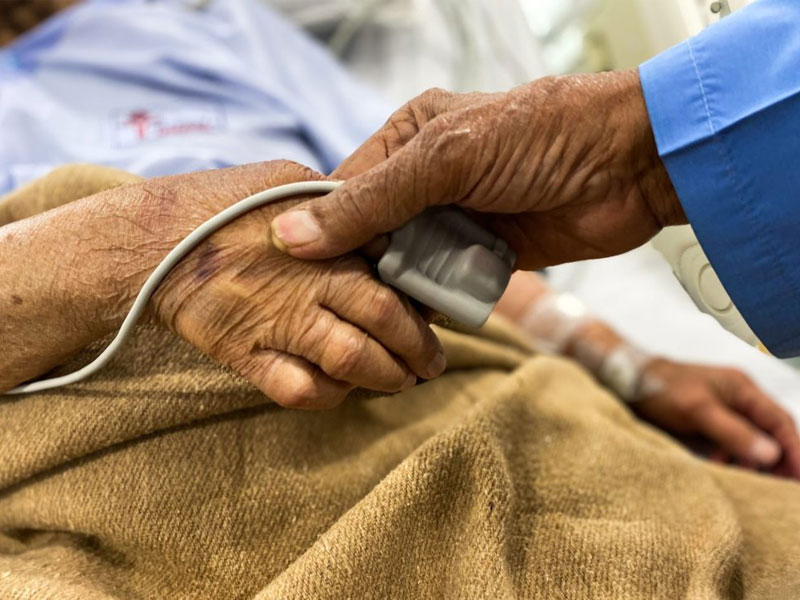
Hospice care provides specialized care and support for individuals with a terminal illness, such as Renal Disease. It addresses the physical, emotional, and spiritual needs of the patient and their family, and can be provided in the patient’s home or in a hospice facility. Eligibility for hospice care is determined by a medical evaluation and Medicare guidelines. Hospice care provides physical comfort, emotional and spiritual support, and family support to those facing the end of life.



Hospice care for renal disease patients is designed to provide a support system for patients and their families during the end-of-life stage. The goal is to help patients maintain their dignity and quality of life, while also providing emotional and spiritual support to the patient and their loved ones. This type of care is provided by an interdisciplinary team of healthcare professionals, including doctors, nurses, social workers, chaplains, and volunteers. The team works together to create a care plan that is tailored to the individual needs of the patient, with the goal of providing comfort and relief from symptoms.
The importance of hospice care for renal disease patients cannot be overstated. As the disease progresses, patients may experience a wide range of symptoms, including pain, fatigue, nausea, and difficulty breathing. Hospice care can help manage these symptoms and provide patients with the support they need to maintain their quality of life during this difficult time. Additionally, hospice care can provide emotional and spiritual support to the patient and their loved ones, which can be invaluable during this challenging time.
When it comes to determining eligibility for hospice care, there are certain criteria that must be met. The guidelines for hospice care eligibility are established by the Centers for Medicare and Medicaid Services (CMS). These guidelines are based on the patient’s prognosis, their ability to continue with curative treatment, and their overall quality of life.
According to CMS, to be eligible for hospice care, the patient must be certified by a physician as having a terminal illness with a life expectancy of six months or less if the illness runs its normal course. Additionally, the patient must choose to receive hospice care instead of curative treatment for their illness.
Advanced stage of the disease: Renal disease is a progressive illness that can cause a wide range of symptoms and complications. For patients with renal disease, hospice care can be an important option to consider as the disease progresses.
Limited life expectancy: Patients with renal disease who have a limited life expectancy and are not expected to recover from their illness may be eligible for hospice care.
Inability to continue with curative treatment: Patients with renal disease who are no longer able to continue with curative treatment, such as dialysis, may be eligible for hospice care.
According to CMS, Renal disease is not a specific condition or diagnosis. It is a general term used to describe any disease or disorder that affects the kidneys. Renal disease is typically a progressive illness that can cause a wide range of symptoms and complications. In advanced stages, it may lead to end-stage renal disease (ESRD) which required dialysis or transplantation. Patients with ESRD and who have a prognosis of six months or less if the illness runs its normal course, and are not candidates for transplantation may be eligible for hospice care.
Patients with renal disease who have an advanced stage of the disease, limited life expectancy, and are no longer able to continue with curative treatment may be eligible for hospice care. These criteria are based on the guidelines established by the CMS and are used to determine if a patient is a suitable candidate for hospice care.
Hospice care is an important option for renal disease patients and their families as the disease progresses. It provides a holistic approach to care that addresses the physical, emotional, and spiritual needs of the patient, and it can help improve the quality of life for patients and their loved ones during the end-of-life stage. It is important for healthcare professionals to educate patients and their families about the benefits and options of hospice care and to coordinate care with other healthcare providers to ensure that the patient’s needs are met.

Meet Matthew, a healthcare professional with over 10 of experience in the medical field. With a passion for improving end-of-life care, Matthew brings a wealth of knowledge and expertise to Hospice Report. Matthew has worked in a number of strategic marketing roles at some of the largest healthcare networks globally and brings a unique perspective on the future of patient care.

Copyright 2023 Hospice Report, All Rights Reserved. | Privacy Policy